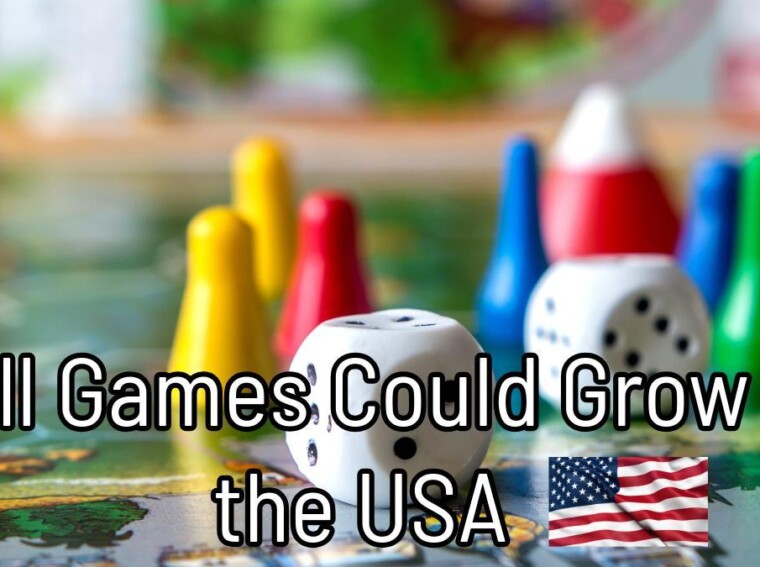People are competitive beings. We have developed an inclination towards competition throughout our evolution. Humans struggled to survive for millennia before modern society came along, battling for resources like shelter, food, and water. Hence, those more adept at acquiring these things survived and passed on their competitive traits to future generations.
Competition in human groups inherently extends to mating opportunities, a quest for dominance in social hierarchies, etc. Thus, conflict, rivalry, and vying for things of value are a key part of our nature. They are an intrinsic motivation that guides us to excel and makes us want to demonstrate what we are capable of to others.
So, it should be no surprise that games where expertise affects outcomes are widely popular. They do not get adored by the masses due to serving as a battleground for individuals to show off their competence only but as a tool for achieving inner satisfaction through mastery in a given pastime. They are also an extremely enjoyable source of entertainment and can help boost personal growth by stimulating creativity, critical thinking, social interaction, and problem-solving. They deliver rewarding experiences produced by a blend of effort and merit. According to various analyses, their prevalence in North America, and the USA especially, could be poised to expand in the coming years.
Here, we will cover the basic types of non-athletic skill games and what US growth potentials they boast.
Board Games
Also called tabletop games (though that is a broader classification), on account of them primarily getting played on tables, board games are ones that customarily use pieces that get moved around, and they may involve cards or other extra elements that play a pivotal part in their gameplay. They have roots dating back to ancient times, with historical evidence showing that most cultures have enjoyed their distinct classes of options from this category. For example, Senet is a board game that experts believe can be dated back to 3,500 BC Egypt.

In modern times, backgammon and chess have established themselves as the most famous options from this group, facing some competition from newer creations like Scrabble, Risk, and Monopoly. Per NPD Group, a renowned market research firm, board game sales are improving yearly, even showing a 28% jump in 2020, their largest one.
Card Games
Undoubtedly, poker is the king of card skill games. While many laypeople may think that Farro’s descendant is more a contest of luck than skill, they are wrong. To be consistently successful in this card gambling pick, a person may employ different strategies and keep making calculated decisions while managing risk and exploiting other players’ psychological weaknesses.
Bridge is another card mainstay, where participants must work together to assess their hands, develop a bidding system, and execute precise plays. And, for newer generations, Magic: The Gathering, a collectible game, has gained massive traction, forcing players to construct decks from a vast card pool, each with unique abilities en route to compete against each other. Magic: The Gathering has around fifty million active players per February 2023 data, and the Main Event of the most recent World Series of Poker shattered its all-time attendance record, showing that poker is still red hot.
Casino Skill Games
This is an oxymoron. However, over the past decade, various jurisdictions have made moves to legalize gaming products containing a skill element. It is essential to point out that poker and casino choices like blackjack, slots, and roulette face different legal treatment because the world’s most famed card game is considered one of skill. And in the case of casino options, the results depend entirely on luck. That was so until 2015, when New Jersey and Nevada began introducing laws that allowed skill-based gambling machines.

That is a trend many online casinos have adopted, helping fish gambling games become all the rage in this sector. For those unfamiliar with this category of Internet and physical gaming picks, they are arcade-like shooters where players fire distinct sets of weapons at various aquatic creatures for prizes. Such titles are also featured at social casinos, fun-play apps, and brick-and-mortar parlors operating under the redemption product class.
Video Games
The latest industry research suggests the number of active gamers worldwide has surpassed 3.3 billion. The total value of the global video game market is estimated at $282 billion, and there are one billion more gamers today than there were a decade ago.
Naturally, the range of variety in this category is massive, as some people in this pastime form love first-person shooters, such as the Call of Duty franchise. Others prefer fighting games like Mortal Kombat. Another set adores musical titles like Guitar Hero. On the other hand, racing fans prefer titles like Gran Turismo and other options where a person’s driving skills get tested in virtual environments. We also have strategic choices like Age of Empires and Civilization for the tactically savvy.
Puzzle Games
Lastly, who does not love solving a crossword puzzle, enjoying some Sudoku, or trying to set a Rubik’s Cube? These activities require logical thinking, spatial skills, and pattern recognition. And as a whole, they are now pulling in $15.09 billion in annual revenues.

